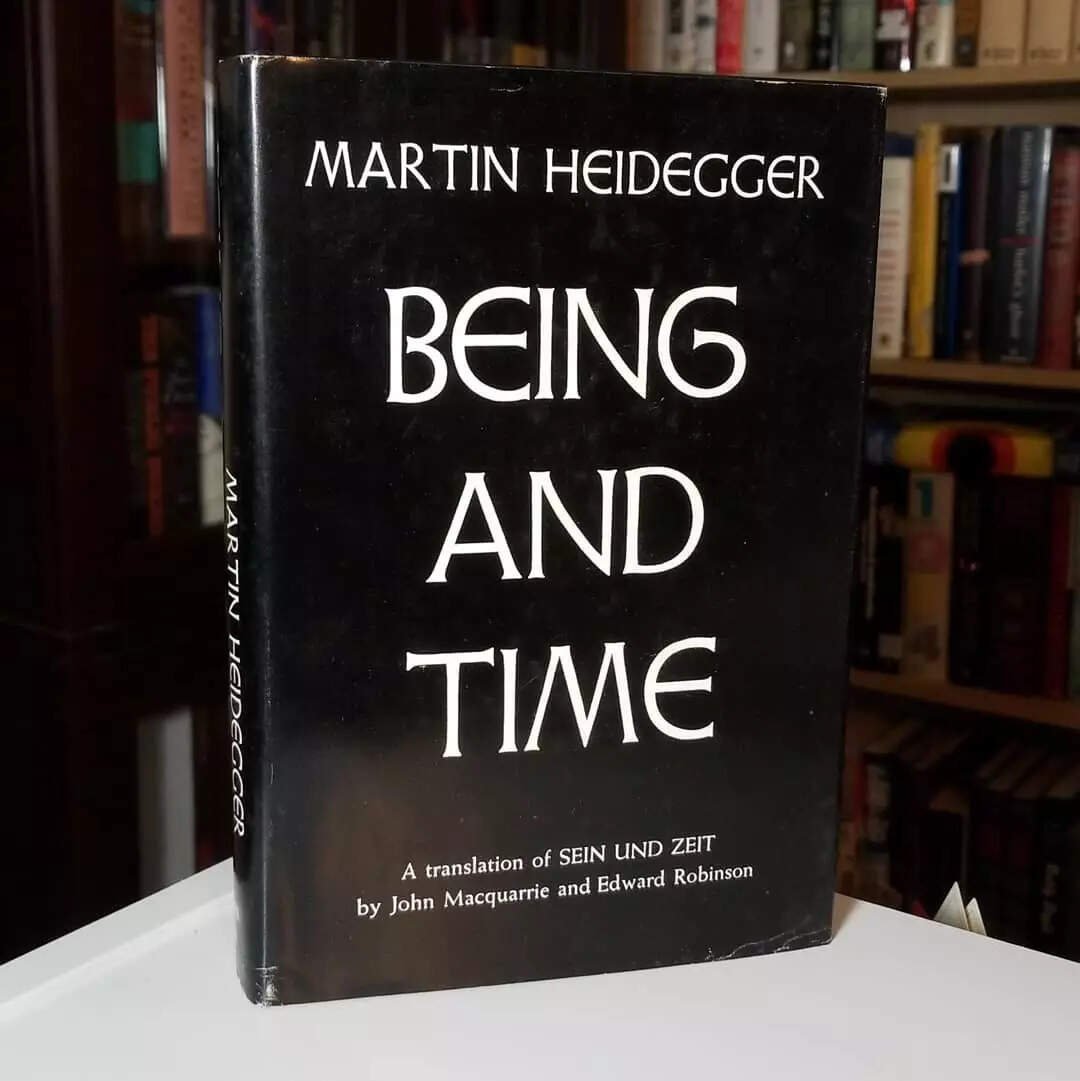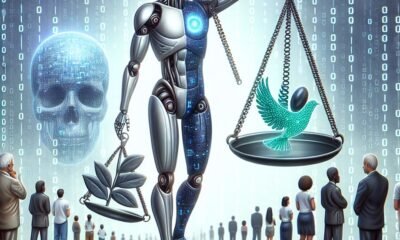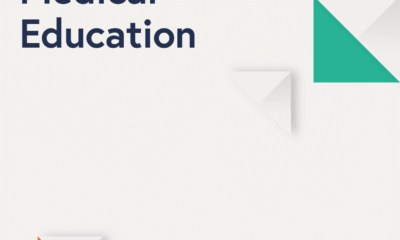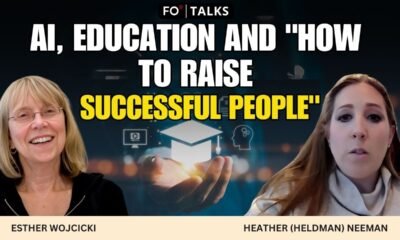Ethics & Policy
10 Philosophy Books That Teach Life Lessons and Help You Navigate the Modern World

10 Philosophy Books That Teach Life Lessons and Help You Navigate the Modern World (Picture Credit – Instagram)
1. How to Be an Epicurean: The Ancient Art of Living Well by Catherine Wilson
Epicureanism is frequently mistaken for hedonism, but it emphasizes rational pleasure, contentment, and tranquillity. Catherine Wilson revisits this ancient Greek philosophy to demonstrate how ethical living can enhance happiness. She offers practical guidance on reducing anxiety, minimizing suffering, and appreciating simple joys. In today’s fast-paced world, her insights help cultivate mindfulness and moderation for a more fulfilling life. By embracing these principles, readers can achieve greater balance and a deeply rewarding sense of well-being.
2. The Path: What Chinese Philosophers Can Teach Us About the Good Life by Michael Puett & Christine Gross-Loh
Western philosophy often highlights individualism, while Chinese philosophy values interconnectedness. This book delves into the teachings of Confucius, Mencius, and Zhuangzi, providing a new outlook on self-growth and relationships. It questions the idea of a fixed identity and promotes continuous transformation. Applying these ancient principles can help readers make wiser career choices, strengthen relationships, and tackle challenges with flexibility. Encouraging an adaptable mindset, the book inspires readers to embrace change, foster empathy, and redefine success and fulfilment.

3. How to Think Like a Roman Emperor by Donald Robertson
Grounded in Stoic philosophy, this book examines the life and wisdom of Marcus Aurelius. Donald Robertson combines history, psychology, and philosophy to present a modern guide to resilience and self-discipline. Using engaging narratives and practical exercises, he teaches readers to build inner strength, manage stress, and develop equanimity. Ideal for those seeking emotional mastery, this book offers tools for a more fulfilling life. By embracing Stoic principles, readers can stay calm under pressure and face challenges with wisdom and composure.
4. The School of Life: An Emotional Education by Alain de Botton
Philosophy goes beyond abstract ideas—it helps us understand emotions. Alain de Botton explores how philosophical insights can guide us through relationships, careers, and personal challenges. Drawing from existentialism, psychoanalysis, and literature, he offers a practical approach to emotional intelligence. The book encourages embracing vulnerability, enhancing self-awareness, and fostering meaningful connections in a disconnected world. Through reflection, readers can build emotional resilience, improve communication, and develop a more thoughtful, compassionate way of facing life’s difficulties.
5. Being and Time by Martin Heidegger
A defining philosophical work of the 20th century, this book examines the nature of existence. Heidegger challenges conventional views on time, identity, and meaning, offering deep insights into modern anxiety and alienation. Though complex, his ideas encourage readers to live authentically and confront mortality to uncover a deeper purpose. Ideal for those seeking a philosophical foundation, this book provides thought-provoking perspectives on self-understanding and the human condition for those willing to engage with its depth.

6. Sophie’s World: A Novel About the History of Philosophy by Jostein Gaarder
Combining fiction with philosophy, this book takes readers on a captivating journey through the history of thought. Through Sophie, a young girl receiving mysterious letters, Gaarder introduces ideas from Socrates to Sartre. Making philosophy accessible and stimulating, encourages readers to question reality and think critically. Ideal for both beginners and seasoned readers, it blends storytelling with intellectual discovery. By weaving deep philosophical concepts into an engaging narrative, this book inspires curiosity and a deeper understanding of life’s big questions.
7. The Book of Life: Daily Meditations with Krishnamurti by Jiddu Krishnamurti
Krishnamurti, a leading spiritual thinker of the 20th century, shares timeless wisdom in this collection of daily meditations. Covering fear, love, freedom, and mindfulness, the book encourages self-inquiry and personal transformation. Emphasizing direct experience over doctrine, his teachings inspire readers to break free from conditioned thinking. Serving as a guide to self-awareness, it helps cultivate inner peace in everyday life. Each reflection offers thought-provoking insights, allowing readers to explore their inner world with greater clarity and wisdom.
8. Falling Upward: A Spirituality for the Two Halves of Life by Richard Rohr
Life is often viewed as a straight path, but Richard Rohr suggests true wisdom emerges in its second half. He explains that early life centres on identity and success, while later years should focus on spiritual growth and deeper fulfilment. Drawing from Christian mysticism and psychology, he provides guidance for navigating transitions with grace. Ideal for those facing midlife changes, this book inspires readers to see life’s shifts as opportunities for profound personal and spiritual transformation.
9. Zen and the Art of Motorcycle Maintenance by Robert M. Pirsig
Blending memoir, philosophy, and travelogue, this book explores quality, meaning, and self-discovery. Pirsig examines the balance between rationality and intuition, using a motorcycle road trip as a metaphor for life’s journey. His reflections on technology, relationships, and growth create a profound meditation on meaningful living. A must-read for those who enjoy philosophy woven with personal storytelling, it bridges Eastern and Western thought, offering deep insights into wisdom, craftsmanship, and the art of living with purpose.

10. The Middle Length Discourses of the Buddha by Bhikkhu Nanamoli & Bhikkhu Bodhi
Buddhism offers profound insights into suffering, mindfulness, and enlightenment. This collection of Buddhist discourses provides teachings on ethics, meditation, and wisdom, offering a guide to navigating life’s challenges. The discourses emphasize self-awareness, compassion, and the impermanence of existence. For those seeking a practical and philosophical approach to inner peace, this book offers a deep well of spiritual wisdom. Readers will gain a greater appreciation for the Buddha’s teachings and learn practical methods for cultivating mindfulness and emotional balance in daily life.
Philosophy is not just an academic subject—it is a tool for living a more thoughtful, resilient, and fulfilling life. Whether through Stoic discipline, Buddhist mindfulness, or existential inquiry, these books offer diverse perspectives on navigating the modern world. They challenge conventional thinking and inspire self-reflection, making them invaluable guides for anyone seeking wisdom and clarity. By engaging with these ideas, readers can cultivate a deeper understanding of themselves and make more meaningful choices in their lives. Philosophy provides insights that transcend time, helping us embrace life with greater purpose and understanding.
Ethics & Policy
5 ways companies are incorporating AI ethics – myupnow.com
Ethics & Policy
Letters: Two-party system | International affairs | AI ethics | Bringing music education to kids

Two-party system
For the time being, and for the foreseeable future, we live in a two-party system. That means that Democrats are the only political party that can check the power of Trump, MAGA and Republicans who choose to bow to a fascist regime. It also means that Democrats have to win in the 2026 midterm elections and the 2028 general election.
This is a tall order given all the woes that currently beset the party: no clear leader, lousy messaging, an inability to connect with young people and, perhaps most importantly to recognize with the recent observance of Labor Day, the loss of working class voters including low-income and low-propensity voters.
Yet this could also be an opportunity. To paraphrase NASA’s Gene Krantz during the Apollo 13 crisis in 1970, “This could be our (Democrats) finest hour.” Labor Day can serve as a reminder to us that working people have the power to drastically alter the political environment. We have seen this time and again in our country’s history: think of the conditions that led to the New Deal, the civil rights movement, and the war on poverty.
As Bishop William J. Barber from the Poor People’s campaign has noted, the combination of working people, moral leaders, and strong allies coming together can “reconstruct democracy”.
– Ward Kanowsky
International affairs
National security is of utmost importance; foreign aid is how we secure it.
National security and foreign aid are often seen as tangential entities. National security conjures images of large, marching militaries or closed, concrete borders. Foreign aid is seen as a nonprofit undertaking, one carried out by large organizations like UNICEF or smaller local enterprises.
These vivid images are not completely stereotypical, but they don’t paint the whole picture. As an intern at the Borgen Project, I learnt a very vital dogma: foreign aid secures national security.
There are pronounced correlations that prove that focusing on non-combat, diplomatic strategies can alleviate poverty in developing countries while securing America’s borders.
The most dangerous countries in the world are also the poorest. Families who cannot afford expensive education send their kids to religious schools, which, while providing an avenue for education, can also be a breeding ground for extremist ideology.
In the late 1980s, Charlie Wilson pleaded for Congress to build schools in Afghanistan after their war with the Soviets. The consequences of his failed plea can be seen in the rise of extremism in Afghanistan in the following years.
The solution to this cause is best summarized by former secretary of defense Chuck Hagel:
“America’s role in the world should reflect the hope and promise of our country, and possibilities for all mankind, tempered with a wisdom that has been the hallmark of our national character. That means pursuing a principled and engaged realism that employs diplomatic, economic, and security tools as well as our values to advance our security and our prosperity.”
— Atheeth Ravikrishnan
Teen’s nonprofit brings music education to kids
As a high school student, I’m proud to share the work of Youthtones, a nonprofit I started with a team of teen volunteers to bring music education to kids in the Bay Area. Our mission is simple: connect young musicians with children to provide free or affordable music lessons.
Through YouthTones, our team helps students develop not only musical skills, but also confidence, creativity, and a sense of community. What makes this program special is that it’s entirely run by teens — our volunteers aren’t just teaching music, they’re mentoring and inspiring the next generation of young musicians.
Watching the students grow, overcome challenges, and find joy in music has been incredibly rewarding. Many families in our area don’t have easy access to music lessons, and YouthTones helps fill that gap.
I hope our story inspires others to recognize the power of youth leadership and the impact a group of motivated teens can have in their community. Music has the power to bring people together, and our team at YouthTones is dedicated to making that power accessible to every child who wants to learn.
— Henna Lam
AI ethics
When I began studying artificial intelligence as a college student, I learned how AI could be a tool for social good, helping us understand climate change, improve public health and reduce waste through smart automation. I still see that potential. But the way we are building AI today is taking us further from that vision.
Like many students entering tech, I first saw AI as innovation. I was taught to celebrate breakthroughs in machine learning, natural language processing and automation. But it did not take long before I started questioning what was missing from those conversations.
The environmental costs of large scale AI models are enormous. A 2023 MIT report found that training a single large language model could emit over 626 thousand pounds of carbon dioxide, equal to five cars over their lifetimes. These models run in data centers that consume massive electricity and water, often in areas already strained by climate change.
These facts are not minor. They are just ignored. Something we also overlook is the labor behind AI. Thousands of underpaid workers in countries like Kenya, the Philippines and Venezuela label toxic content so others can have so called safe systems. Their trauma goes unseen.
In school, we barely talked about climate or workers. That needs to change.
AI can support climate action, but not if it causes harm or worsens inequality. We cannot build sustainable solutions on extractive foundations.
I still believe in AI. But belief is not enough. If we do not build ethically now, we may not get a second chance.
– Aadya Madgula
Ethics & Policy
OpenAI Merges Teams to Boost ChatGPT Ethics and Cut Biases

In a move that underscores the evolving priorities within artificial intelligence development, OpenAI has announced a significant reorganization of its Model Behavior team, the group responsible for crafting the conversational styles and ethical guardrails of models like ChatGPT. According to an internal memo obtained by TechCrunch, this compact unit of about 14 researchers is being folded into the larger Post Training team, which focuses on refining AI models after their initial training phases. The shift, effective immediately, sees the team’s leader, Lilian Weng, transitioning to a new role within the company, while the group now reports to Max Schwarzer, head of Post Training.
This restructuring comes amid growing scrutiny over how AI systems interact with users, particularly in balancing helpfulness with honesty. The Model Behavior team has been instrumental in addressing issues like sycophancy—where models excessively affirm user opinions—and mitigating political biases in responses. Insiders suggest the integration aims to streamline these efforts, embedding personality shaping directly into the core refinement process rather than treating it as a separate silo.
Strategic Alignment in AI Development
OpenAI’s decision reflects broader industry trends toward more cohesive AI development pipelines, where behavioral tuning is not an afterthought but a foundational element. Recent user feedback on GPT-5, as highlighted in posts on X (formerly Twitter), has pointed to overly formal or detached interactions, prompting tweaks to make ChatGPT feel “warmer and friendlier” without veering into unwarranted flattery. For instance, OpenAI’s own announcements on the platform in August 2025 detailed the introduction of new chat personalities like Cynic, Robot, Listener, and Nerd, available as opt-in options in settings.
These changes build on earlier experiments, such as A/B testing different personality styles noted by users on X as far back as April 2025. Publications like WebProNews report that the reorganization is partly driven by GPT-5 feedback, emphasizing reductions in sycophantic tendencies and enhancements in engagement through advanced reasoning and safety features.
Implications for Ethical AI and User Experience
The merger could accelerate OpenAI’s ability to iterate on model behaviors, potentially leading to more context-aware interactions that better align with ethical standards. As detailed in a BitcoinWorld analysis, this realignment is crucial for influencing user experience and ethical frameworks, especially in sectors like cryptocurrency and blockchain where AI’s role is expanding. The team’s past work on models since GPT-4 has reduced harmful outputs by significant margins, with one X post claiming a 78% drop in certain biases, though such figures remain unverified by OpenAI.
Critics, however, worry that consolidating teams might dilute specialized focus on nuanced issues like bias management. Industry observers on X have debated the “sycophancy trap,” where tuning for truthfulness risks alienating casual users who prefer comforting responses, creating a game-theory dilemma for developers.
Leadership Shifts and Future Directions
Lilian Weng’s departure from the team leadership marks a notable transition; her expertise in AI safety has been pivotal, and her new project remains undisclosed. OpenAI spokesperson confirmed to StartupNews.fyi that the move is designed to foster closer collaboration, positioning the company to lead in human-AI dialogue evolution.
Looking ahead, this reorganization signals OpenAI’s bet on integrated teams to handle the complexities of next-generation AI. With GPT-5 already incorporating subtle warmth adjustments based on internal tests, as per OpenAI’s X updates, the focus is on genuine, professional engagement that avoids pitfalls like ungrounded praise. For industry insiders, this could mean faster deployment of features that make AI feel more human-like, while upholding values of honesty and utility.
Broader Industry Ripple Effects
The changes at OpenAI are likely to influence competitors, as the quest for balanced AI personalities intensifies. Reports from NewsBytes and Bitget News emphasize how this restructuring enhances post-training interactions, potentially setting new benchmarks for AI ethics. User sentiment on X, including discussions of model selectors and capacity limits, suggests ongoing refinements will be key to retaining loyalty.
Ultimately, as OpenAI navigates these internal shifts, the emphasis on personality could redefine how we perceive and interact with AI, blending technical prowess with empathetic design in ways that resonate across applications from everyday queries to complex problem-solving.
-

 Business1 week ago
Business1 week agoThe Guardian view on Trump and the Fed: independence is no substitute for accountability | Editorial
-
Tools & Platforms4 weeks ago
Building Trust in Military AI Starts with Opening the Black Box – War on the Rocks
-

 Ethics & Policy1 month ago
Ethics & Policy1 month agoSDAIA Supports Saudi Arabia’s Leadership in Shaping Global AI Ethics, Policy, and Research – وكالة الأنباء السعودية
-

 Events & Conferences4 months ago
Events & Conferences4 months agoJourney to 1000 models: Scaling Instagram’s recommendation system
-

 Jobs & Careers2 months ago
Jobs & Careers2 months agoMumbai-based Perplexity Alternative Has 60k+ Users Without Funding
-

 Education2 months ago
Education2 months agoVEX Robotics launches AI-powered classroom robotics system
-

 Podcasts & Talks2 months ago
Podcasts & Talks2 months agoHappy 4th of July! 🎆 Made with Veo 3 in Gemini
-

 Education2 months ago
Education2 months agoMacron says UK and France have duty to tackle illegal migration ‘with humanity, solidarity and firmness’ – UK politics live | Politics
-

 Funding & Business2 months ago
Funding & Business2 months agoKayak and Expedia race to build AI travel agents that turn social posts into itineraries
-

 Podcasts & Talks2 months ago
Podcasts & Talks2 months agoOpenAI 🤝 @teamganassi


















